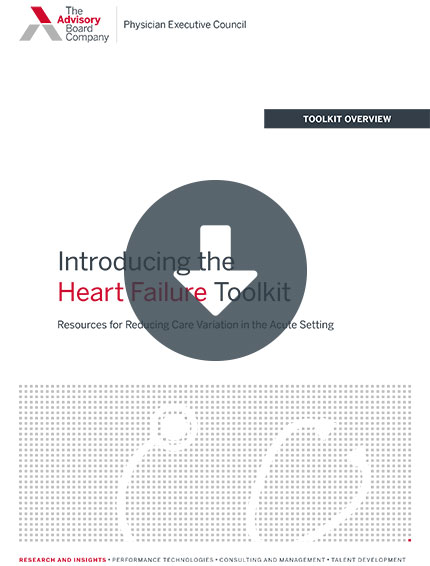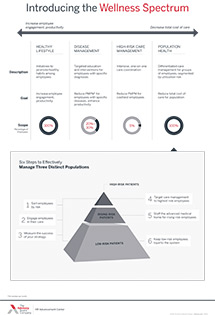Auto logout in seconds.
Continue LogoutEditor's note: This popular story from the Daily Briefing's archives was republished on Sept. 10, 2020.
Many people blame their troubles in maintaining a healthy body weight on their slow metabolisms, but after spending almost 24 hours in a high-tech "metabolic chamber" at NIH, Vox reporter Julia Belluz discovered that the body's real metabolic processes are far more complicated.
How metabolism works
Metabolism is a catch-all term for the chemical reactions that convert the energy from our food and beverages into fuel for the body, Belluz explains.
That energy is expended in three main ways:
- Basal metabolism—the energy needed to keep all of the cells and organs in our body working, which uses up about 65% to 80% of the total calories we burn in a day;
- Digestion—the energy used to break down food, which accounts for about 10% of all calories burned in a day; and
- Physical activity—the calories burned while moving around, which account for about 10% to 30% of total calories burned in a day.
Many factors affect how fast or slow a person's metabolism might be—including the amount of lean muscle and fat tissue they have, as well as their age, body, and genetics. Further, a person's metabolic rate can change in response to one's environment and behaviors, Belluz writes.
What researchers have learned from metabolic chamber research
The NIH metabolic chamber, which is also referred to as a whole-room calorimeter, is an airtight, 11-by-11.5-foot room equipped with a bed, an exercise bike, a toilet, and nothing else. A series of metal pipes along the ceiling allow researchers to measure exactly how much oxygen a person consumes and how much carbon dioxide they produce, which can be used to very precisely calculate an individual's metabolic rate, Belluz writes.
NIH has three such chambers and runs about 400 studies each year to better understand diabetes, obesity, and other weight problems. Through this line of research, NIH scientists have found that metabolism is very adaptive, able to work with appetite, body composition, and physical activity to adjust the amount of calories being burned at any moment, Belluz writes.
They've discovered that participants given a medication that causes them to lose an additional 360 calories a day through their urine unknowingly compensate for those lost calories by eating more. And they've debunked the idea that the body burns more fat on high-fat and low-carb ketogenic diets rather than high-carb diets.
Belluz's 23-hour stay in a metabolic chamber
Even though past metabolic chamber research has illuminated how people in general burn calories, Beluz still wanted to know: How does her own metabolism work?
In particular, she writes, at times in the past she has been overweight, and she wondered whether her metabolism had adjusted in ways that make it difficult for her now to maintain a healthy body weight. In short, like many people, she blamed her weight challenges on a "slow metabolism."
So in June, she spent 23 hours inside one of NIH's metabolic chambers. She ate, exercised, and rested at predetermined intervals—all while wearing a heart monitor and three accelerometers on her wrist, waist, and ankle, and with researchers monitoring her levels and counting every calorie she consumed.
She underwent a "metabolic cart" exam, which required her to be fitted with a "clear domed hood over [her] head" to capture her carbon dioxide output. Finally, at the end of her stay, Belluz was instructed to "collect urine samples every day for a week" and to continue to wear the three accelerometers.
"Together, this data would give the researchers a sense of my average daily calorie burn as a 'free-living subject,' outside the hospital," Belluz wrote.
What Belluz learned about her own metabolism
For Belluz, the results were enlightening. Despite years of believing she suffered from a "slow metabolism," the research showed her metabolism was "perfectly normal." While in the chamber, she consumed about 1,850 calories and burned about 2,330 calories. Of the calories burned, about 1,400 were burned during her periods of inactivity, while 405 were burned during exercise.
Belluz further learned she was "bad at estimating [her] calorie consumption." She writes that she consistently underestimated the number of calories she was eating each day, prompting her to wonder "how many of us blame some aspect of our biology for weight gain when we're really just underestimating our calorie intake, forgetting all the little extras we eat and drink that can add up to pounds over the years."
Is a 'slow metabolism' really a widespread problem?
There are still plenty of unanswered questions about the metabolism, Belluz writes. For example, it's still not known why some people with the same size and body composition have differing metabolic rates, nor is it known why certain ethnic groups have a higher risk of developing metabolic disorders like diabetes.
Aaron Cypess, a metabolism and brown fat researcher at NIH, said he's trying to understand how the brain knows what the body weighs in order to control its metabolic rate. "If I knew how the brain is aware of how much the body weighs, and how to regulate how many calories it burned off, I could change that setting and help an overweight person burn more calories through an increase in metabolic rate," he said.
That notion offers a promising direction for future research, according to Lex Kravitz, a neuroscientist and obesity researcher at NIH. "Even if a slow metabolism isn't the reason people become obese," Kravitz said, "it may still be a place to intervene for weight loss."
Even so, Belluz's ultimate takeaway from the metabolic chamber was that "while some people have a 'slow metabolism' relative to others their size and age, this isn't a major cause of obesity" (Belluz, Vox, 9/4).
Understand the wellness spectrum—and help your employees promote healthy habits
Programs aimed at promoting healthy habits among employees are likely to lead to improved employee engagement and productivity—but they're unlikely to reduce the total cost of care. To do that, you'll need to take a population health approach.
Don't miss out on the latest Advisory Board insights
Create your free account to access 1 resource, including the latest research and webinars.
Want access without creating an account?
You have 1 free members-only resource remaining this month.
1 free members-only resources remaining
1 free members-only resources remaining
You've reached your limit of free insights
Become a member to access all of Advisory Board's resources, events, and experts
Never miss out on the latest innovative health care content tailored to you.
Benefits include:
You've reached your limit of free insights
Become a member to access all of Advisory Board's resources, events, and experts
Never miss out on the latest innovative health care content tailored to you.
Benefits include:
This content is available through your Curated Research partnership with Advisory Board. Click on ‘view this resource’ to read the full piece
Email ask@advisory.com to learn more
Click on ‘Become a Member’ to learn about the benefits of a Full-Access partnership with Advisory Board
Never miss out on the latest innovative health care content tailored to you.
Benefits Include:
This is for members only. Learn more.
Click on ‘Become a Member’ to learn about the benefits of a Full-Access partnership with Advisory Board
Never miss out on the latest innovative health care content tailored to you.


